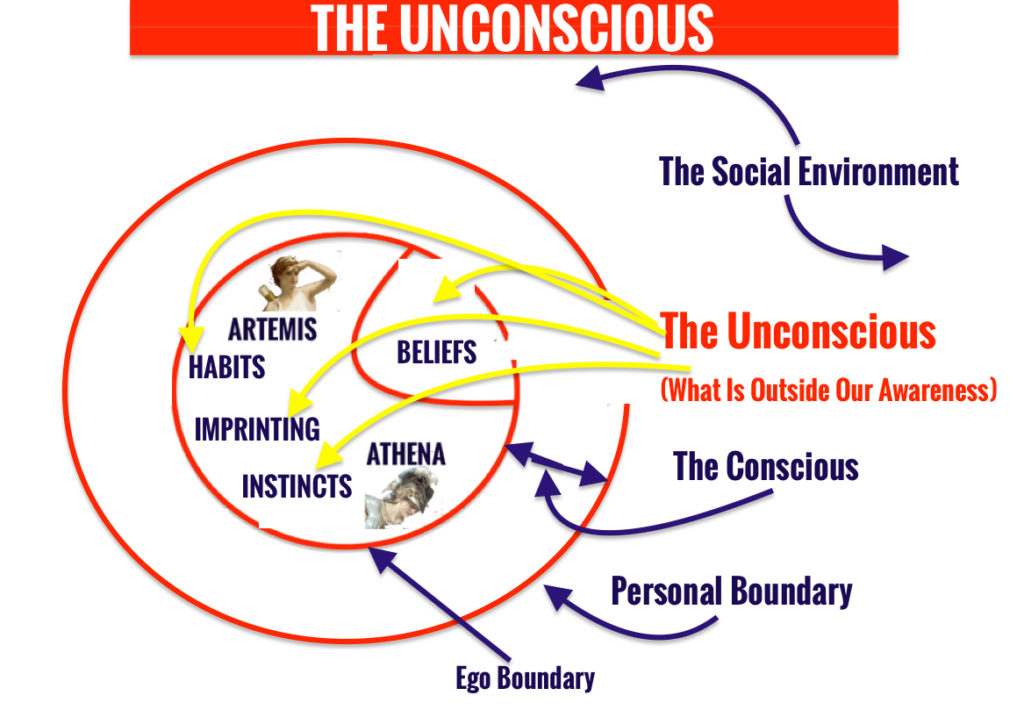The unconscious mind has been a core interest of philosophers throughout history. It has been referred to in many ways, from Aristotle to Freud. In Romantic Dynamics, we seek to get more precise and circumscribed about what it means exactly and how we can make the definition practical to ourselves.
And so for our purposes, we will view the unconscious mind as those mental processes that operate outside our conscious awareness.
These would include the functions of both the survival instincts ("fight or flight") and the gender instincts ("masculine instincts" and "feminine instincts"), as well as various other kinds of operations such as our habits, our ego defenses or "defense mechanisms," and even non-actionable features of the mind, such as our beliefs and values, stored memory that is not accessible and the like.
This is not to say that we cannot be "conscious of the unconscious," as that is one of the goals of psychoanalysis - to become aware of our own instincts and habits. It is also a general personal growth goal for many people to become aware of their hidden, unconscious belief systems and memories. There are also stored, the "firmware" or sets of instincts just waiting to be activated under the right conditions, called "imprinting" instincts.
These imprinting instincts, in Romantic Dynamics, are viewed to be activated by interactions with our same sex and opposite sex parent, in processes of attachment, bonding, identification and eventually in initiation into adulthood.
The functional set of processes that Romantic Dynamics seeks to assign to the general notion of the unconscious is what we call, "The Reptilian Brain." The inner "software" of the mind which deals with such survival mechanisms as running bodily processes, but also the "housing" of all the instincts, both survival and reproductive, according to the Evolutionary Psychologists.
In Romantic Dynamics, we conceive of two kinds of "boundaries" within the mind, seeing the mind as a "#D" structure which has an exterior, personal boundary, forming an interface with the outside world. And an interior "boundary" that we call the "Ego Boundary," which demarcates what is conscious from what is unconscious to us, on the inside, and isn't necessarily expressed to the outside world or social environment (unless we do what is called "acting out," an ego defense in which a person's unconscious instincts and drives directly expresses into the environment and social scene.)
The prime way to start becoming aware of your own unconscious processes is to employ that most important skill of personal growth, called Observing Ego, which allows you to "see" what's going on inside yourself, what's going on outside yourself, to make a match between the two which is effective at getting to your goals, and general awareness of your own mental processes, both conscious and unconscious. It gives you the ability to say and do the "right thing in the right way at the right time." Observing Ego then has a role in helping you make the unconscious, more conscious.
We view what Freud called the "subconscious" as the "Mammalian Brain" and the Conscious as the "Higher Brain."


